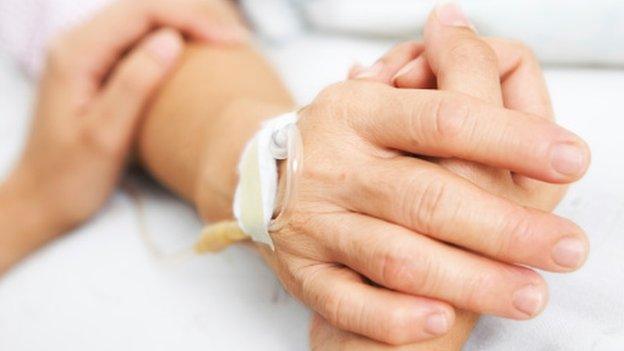Assisted dying: Archbishop Welby urges MPs to reject bill
- Published
- comments
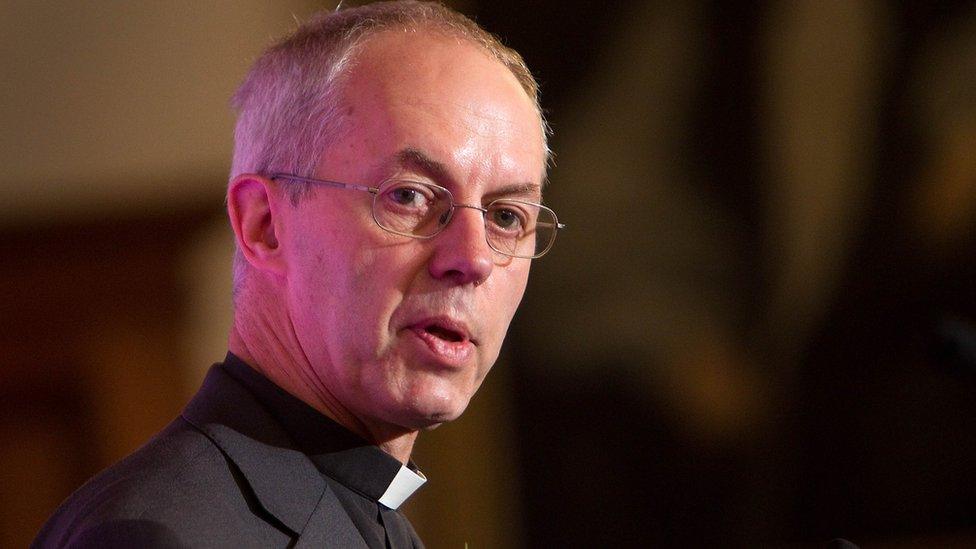
The UK will cross a "legal and ethical Rubicon" if the law on assisted suicide in England and Wales is changed, the Archbishop of Canterbury has said.
MPs will debate the Assisted Dying (No 2) Bill, external - which would allow doctors to help terminally ill patients to die in some circumstances - on Friday.
But Justin Welby said the bill would mean suicide was "actively supported" instead of being viewed as a tragedy.
He and other faith leaders have issued a joint letter, external urging MPs to reject it.
'Compassionate approach'
Writing in the Observer, the archbishop said he and the heads of other Christian, Jewish, Muslim and Sikh groups believed the bill went beyond "merely legitimising suicide to actively supporting it".
He said asking doctors to aid suicide would be "a change of monumental proportions both in the law and in the role of doctors".
"This respect for the lives of others goes to the heart of both our criminal and human rights laws and ought not to be abandoned," the archbishop said.
"I agree that the law should take a considered and compassionate approach to caring relatives who are asked by those closest to them to help bring their lives to an end.
"To change the law, however, to give individuals access to medically prescribed lethal drugs risks replacing the type of personal compassion that is forged in a life-time relationship for a 'process' marked by clinical and judicial detachment."
The archbishop said a change in the law would place thousands of vulnerable people at risk.
Informed decision
The private members' bill set to be debated on Friday was put forward by Rob Marris, the Labour MP for Wolverhampton South West.
It is almost identical to a bill presented by former Lord Chancellor Lord Falconer,, external which passed its initial legislative stages in the House of Lords last year before running out of parliamentary time.
The archbishop argued against the previous bill, calling it "mistaken and dangerous" and he pressed for an inquiry into assisted suicide.
The official position is that the Church of England is opposed to assisted dying but Lord Carey, the former archbishop of Canterbury, has argued in favour of a change in the law.
According to the campaign group Dignity in Dying, at least 35 people from the UK went to the Dignitas organisation in Switzerland to end their lives last year.

Dignitas is based in this building near Zurich
Rabbi Dr Jonathan Romain, chair of inter-faith leaders for Dignity in Dying, said: "We hold that life is precious and to be valued, but when it becomes unbearable, there is no reason for someone already dying who wishes to relinquish it to be forced to carry on against their will.
"Assisted dying for the terminally ill who are mentally competent and request it of their own free is not a mortal sin but a religious option."
The Assisted Dying (No 2) Bill, if passed, would allow doctors to prescribe a lethal drug dose to terminally ill patients in England and Wales who are deemed to have less than six months to live.
A High Court judge and two independent doctors would all be required to agree that the patient had made an informed decision to die.
The bill does not allow for assisted suicide when the patient is not terminally ill, nor for voluntary euthanasia, where a doctor administers the lethal medication.
In Scotland MSPs rejected the Assisted Suicide Scotland Bill by 82 votes to 36 following a debate in May.
- Published12 July 2014
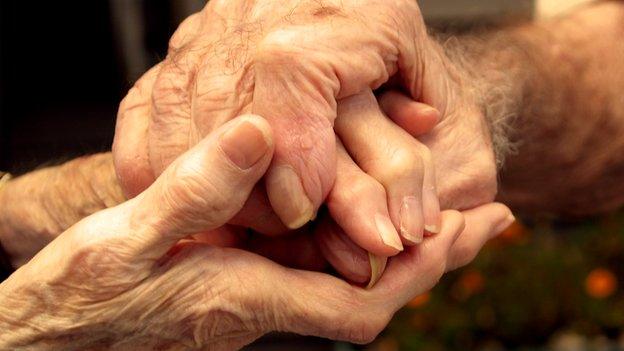
- Published16 July 2014
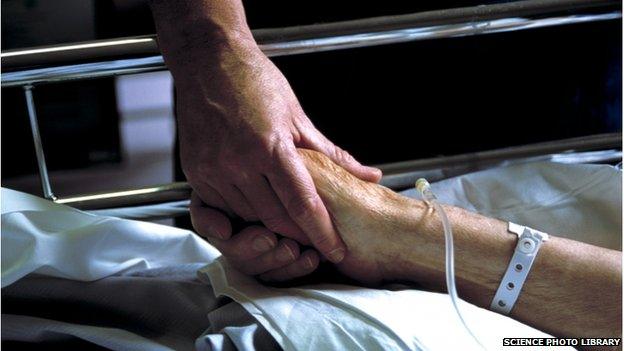
- Published12 July 2014
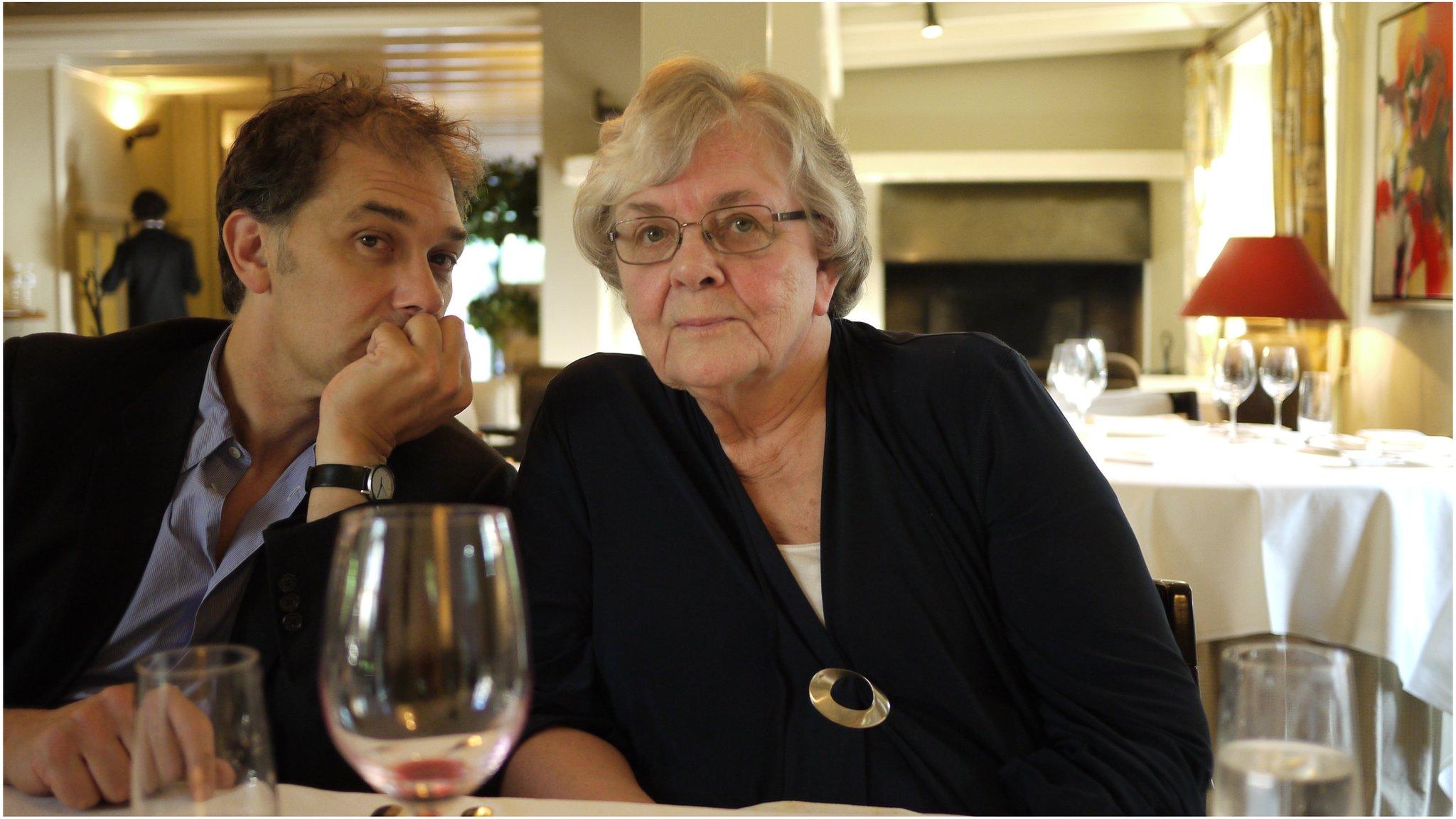
- Published17 July 2014
